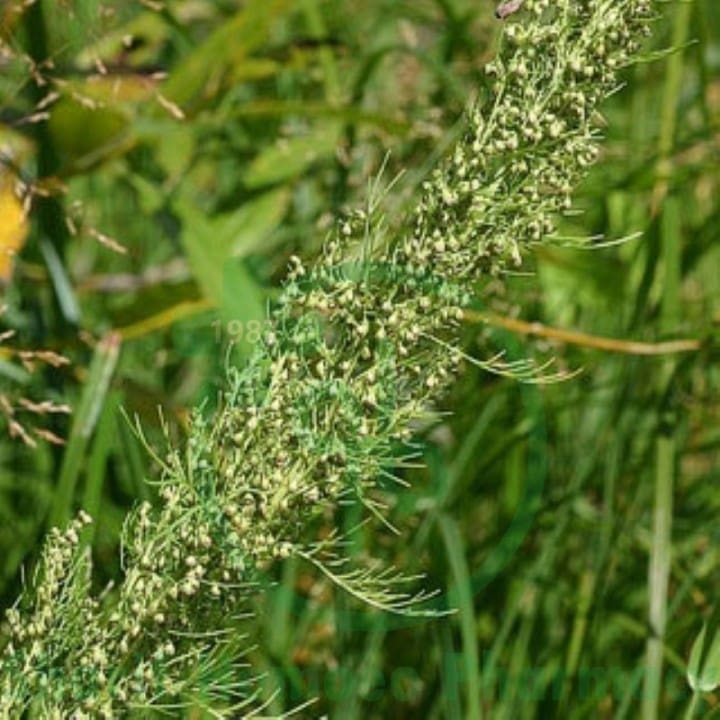
Cina maritima
Latin name: Cina maritima
Short name: Cina
Common name: Wormseed | Levant Wormseed | Artemisia cina | Semen contra | Santonica
Primary miasm: Psoric Secondary miasm(s): Sycotic
Kingdom: Plants
Family: Asteraceae (Compositae)
- Symptomatology
- Remedy Information
- Differentiation & Application
Cina maritima is a flowering plant of the Asteraceae family, native to the Middle East and Central Asia. It yields a potent anthelmintic known as santonin, traditionally used to expel intestinal worms, especially in children. In homeopathy, it acts primarily on the nervous system, gastrointestinal tract, and mucous membranes, especially in children with worm complaints and behavioural disturbances.
Employed in herbal and traditional medicine as a powerful vermifuge. Santonin, derived from Cina, was once used pharmaceutically to treat ascaris and pinworms.
Proven by Hahnemann and extensively verified in children. Allen, Hering, and Clarke all contributed key clinical confirmations. The majority of provings and confirmations stem from paediatric contexts.
- Nervous system – especially in children: twitching, jerking, spasms
- Gastrointestinal tract – worms, ascaris, pinworms
- Nose – irritation, itching, bleeding
- Sleep – restless, disturbed by dreams and jerking
- Mind – irritability, temper tantrums, contrariness
- Eyes – blue rings under eyes in children
- Face – pale or flushed, with grinding of teeth
- Being carried (especially children)
- Lying on abdomen
- Passing stool or flatus
- After vomiting
- Cold air (sometimes)
- Rocking or motion
- Touch (child may scream if approached)
- Night, especially before midnight
- During sleep
- Looking fixedly at objects (triggers convulsions)
- Worm infestations
- After eating sweets or milk
- Heat (can aggravate both skin and mental state)
- Pressure on abdomen
- Chamomilla – Also irritable and oversensitive, but with more heat, one cheek red
- Antimonium crudum – Wormy children, loves pickles and overeating, sensitive to reprimand
- Spigelia – Neuralgia with worm complaints, more cardiac and left-sided symptoms
- Santoinum – More specific for worms with fewer mental symptoms
- Calcarea carbonica – Flabby, sweaty children, less restless
- Hyoscyamus – Spasmodic children with more sexual element, less worm-specific
- Complementary: Santoninum, Calcarea, Silicea
- Antidotes: Camphora, Nux vomica
- Follows well: Aconite, Belladonna
- Inimical: Ignatia (in some cases)
The essence of Cina is the discontented, over-sensitive, nervous child, often afflicted with worms or chronic digestive and behavioural disturbances. There is a pronounced disconnect between inner irritation and outer response: the child lashes out, but cannot be soothed. Cina reflects a disturbed balance between the enteric and cerebral systems, with mental unrest arising from intestinal irritation. It captures the archetype of a frazzled nervous system under toxic pressure—the child who writhes, screams, and suffers in mind and belly alike.
- Chief remedy for worm infestations in children with restlessness and grinding teeth
- Consider for night terrors, head-banging, or biting behaviours
- Excellent in spasmodic coughs with abdominal irritation
- Children who are worse from touch, even parental comfort
- Useful in nervous tics, habitual nose-picking, and abdominal bloating
Mind
- Capriciousness, desires things and then rejects them
- Irritability, aversion to being touched
- Restlessness, especially at night
- Screaming during sleep
Abdomen
- Pain, bloated, hard
- Sensation of something alive
- Worms, ascarides
- Pain better lying on abdomen
Sleep
- Bores head into pillow
- Cries out in sleep
- Jerking limbs during sleep
- Teeth grinding
Extremities
- Twitching, spasms
- Jerking of limbs
- Cold feet with hot face
Skin
- Blue rings under eyes
- Itching anus
- Pale skin
- Scratch nose until it bleeds
- Samuel Hahnemann – Materia Medica Pura: Original proving symptoms
- C. Hering – Guiding Symptoms: Twitching, worm symptoms, mental states
- J.T. Kent – Lectures on Homoeopathic Materia Medica: Capriciousness and nervous irritation
- William Boericke – Pocket Manual: Summary of worm complaints and mental traits
- John Henry Clarke – Dictionary of Practical Materia Medica: Expanded clinical and sleep symptoms
- Allen’s Encyclopaedia: Broad confirmation of generalities and organ affinities
